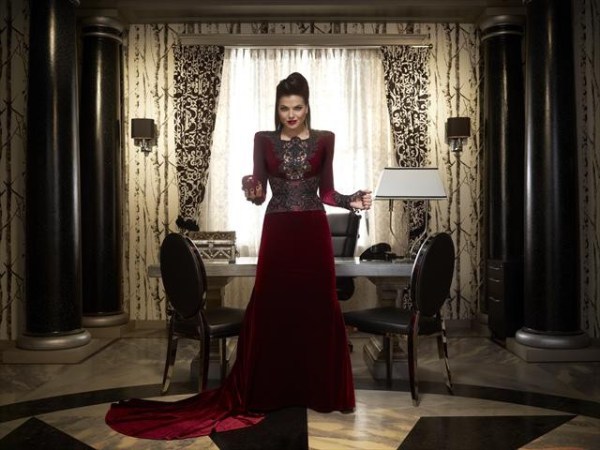There’s no shortage of stunningly beautiful women with enviable curves and saucy attitudes on TV. A Latino accent thicker than molasses, a role that’s not supportive and no need of a maid outfit, well, that certainly narrows it down considerably.
Mistresses, strippers, maids, criminals, gold-diggers – Latina actresses looking for roles on TV shows have always had a tough time breaking away from these go-to stereotypes, especially in comedy, if they wish to take on a role that leaves lasting impressions on the audience.
 Against all odds, Sofía Vergara managed to somewhat achieve just that. Sure, her character of Gloria Delgado-Pritchett in the acclaimed comedy series Modern Family still sometimes feels like a prolonging of the sensual, exotic and outrageous Latina babe stereotype, but she has taken down a lot of the barriers with it and has managed to convey the way in which we Latinos embrace and celebrate our culture and our roots regardless of where, or with whom, we are.
Against all odds, Sofía Vergara managed to somewhat achieve just that. Sure, her character of Gloria Delgado-Pritchett in the acclaimed comedy series Modern Family still sometimes feels like a prolonging of the sensual, exotic and outrageous Latina babe stereotype, but she has taken down a lot of the barriers with it and has managed to convey the way in which we Latinos embrace and celebrate our culture and our roots regardless of where, or with whom, we are.
Since it premiered in 2009, Modern Family has taken praise, awards and ratings for its hilarious and surprisingly honest portrayal of three different families that go from the standard mom and dad with kids to the gay family and then to the age-gap family, which is where Gloria comes in.
Before meeting Jay Pritchett, the beautiful Colombian single mom was earning minimum wage as a waitress and living in a terrible neighborhood with her teenage son. Then the loaded older man came along and they married shortly after meeting, much to the dismay of Jay’s two grown up children (roughly the same age as their father’s new bride), who all thought the stunning Latina was nothing but a gold-digger.
In fact, the main conflict on the very first episode of the series is the confrontation of Gloria and Jay’s daughter, Claire, who still thinks Gloria is after her father’s money. Gloria is well aware that she’s beautiful and young, and she is not apologetic about the fact that Jay’s money and the security it offered her and her teen son did have some sway on how she saw him, but the kicker here is that she genuinely loves him and has absolutely no problem with what anyone has to say about her new family and the oddness of her relationship with Jay – or enjoying her new lifestyle as she sees fit.
Furthermore, Gloria makes a point out of maintaining her traditions and teaching her new family about them, whether they like to or not.
As can be expected from a character with Latin roots, jokes about drug cartels, prostitution, poverty and superstitions are abundant in the show’s repertoire when it comes to Gloria. But they are so absurdly exaggerated and hyperbolized they’re hard to take seriously. Much like the thickness of Gloria’s accent, which constantly turns words like “ultimatum” into “old tomato”, the sheer absurdity of the background she comes with makes a mockery out of the stereotypes assigned to the Latin community.
The hilarity of her character aside, Gloria does bring into the show a lot of real Latino characteristics, like how family-oriented she is, the liveliness that identifies our community and the embracing of our traditions and culture.
She encourages her son, Manny, to wear ponchos to school, to be passionate and romantic, and most of all, to not forget about the Spanish language. In an episode from season 4, Gloria is outraged that her son is becoming so Americanized that he’s letting go of his Latino roots and takes it upon herself to remind him of the importance of not forgetting his Spanish.
Her husband is not exempt from being taught about her language, especially when he and Manny refuse to stop making fun of the thickness of her accent, which is the effect of retaining the inflections of her native language. In the sixth episode of season 2, she begins to speak like an American, with no trace of her accent, and begins to act in the restrained and mild manner that supposedly goes along with the absence of the accent. The effect is disconcerting on the family, for they no longer feel like that is their Gloria and finally beg her to speak with her accent again.
Gloria’s lessons are not limited to her language but also to her beliefs and traditions. In another episode of the second season, Jay mocks Gloria’s certainty that the spirit of her grandmother is with her. He feels bad later, but Gloria won’t let him off so easily, tricking him into ridiculously slapping the carcass of a chicken and screaming at it rhythmically, claiming that’s a Colombian cooking custom that he must respect. Later, she says to the camera: “You mess with us, we mess with you; that’s the custom.”
A number of Latina actresses that have managed to make a name for themselves on TV, but it’s rare to see one doing it while staying true to her roots. Gloria’s character, her love for her culture, customs and family values are a great example of what greatly identifies us as a community. Her extremely lively personality and overexposed sensuality are perhaps what limits her from being much of a radical change in the perception of Latinas on TV, but that’s not to say it isn’t a step into the right direction.
Lorraine Acevedo Franqui writes for Girl In Capes from Puerto Rico and holds degrees in English Literature and Psychology. Her main interests are young adult lit, anything related to The Legend of Zelda and Kingdom Hearts, assorted shounen mangas and cats.





